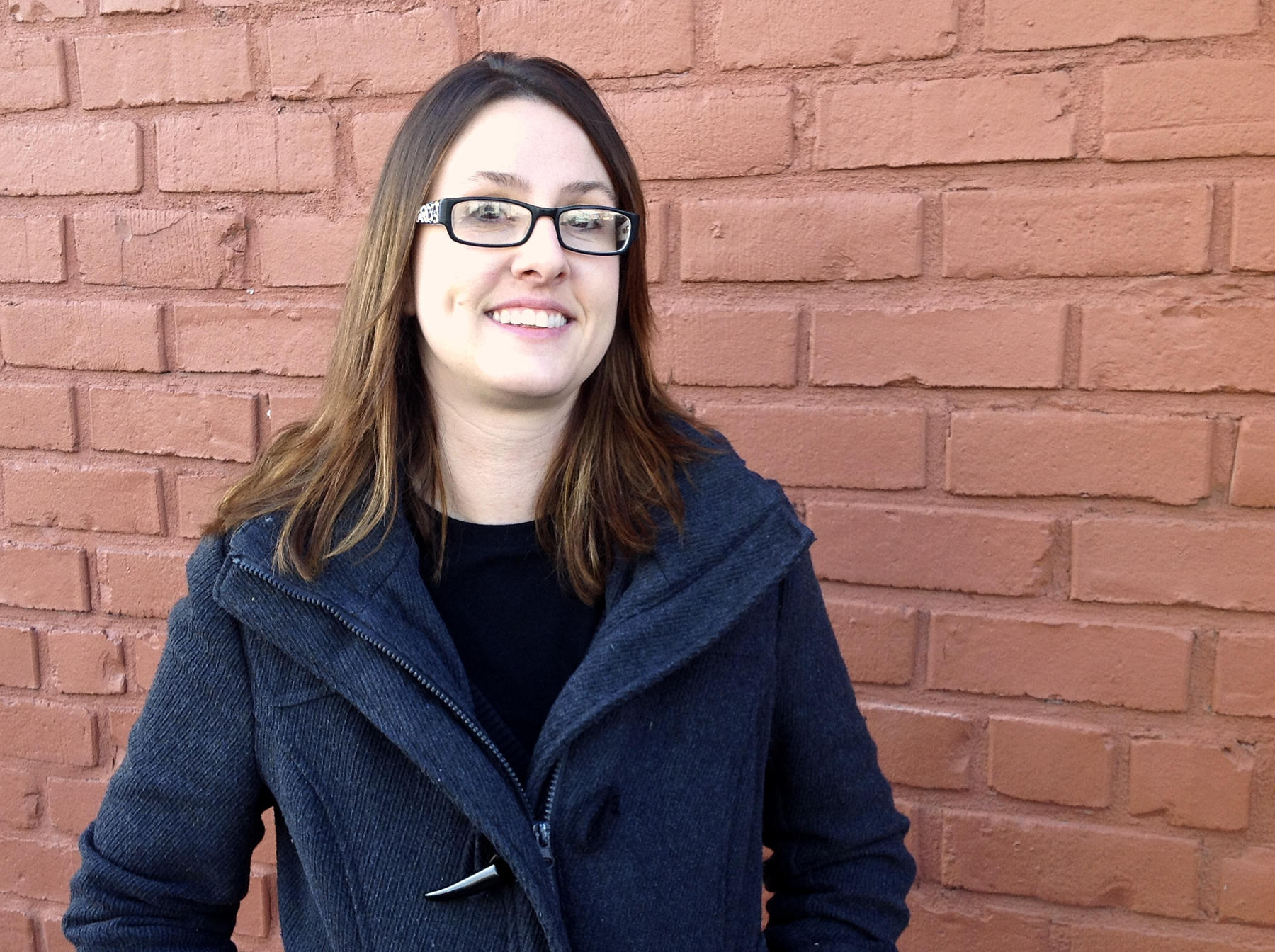Like many students, Angela Proffitt didn’t have a lot of direction when she started her college career. She was working full-time as a case manager for Sedgwick County COMCARE, and while she enjoyed parts of her job, she was unsatisfied. She knew she wanted to work in a medical field, in a career that provided stability, challenges and a comfortable salary.
With the help of Wichita State University’s speech-language pathology program (SLP), Proffitt will transition from college graduate into a professional career immediately after commencement Sunday, Dec. 15.
Proffitt already had a bachelor’s degree in psychology, but it was a degree that was produced more from the culmination of her coursework rather than her passion and goals. When she decided to pursue a master’s degree, a friend suggested she look into being a speech therapist.
“I’d learned from my job what I didn’t want to do, but I didn’t know if speech was for me either,” said Proffitt. “When I looked into the SLP program at Wichita State, I was like, ‘Okay, this is interesting.’ The courses they offered intrigued me, so I signed up to try out a couple. I was totally hooked by the first class I had, phonetics with Dr. Barbara Hodson.”
Working through the challenges
Proffitt is a single parent, so continuing her education was a challenge. She found graduate school intimidating at first, but didn’t let it scare her away.
“I liked (the SLP program) more than I was intimidated, and the master’s program was daunting but doable,” she said. “There’s a lot involved, but you can’t let that get to you. You have to put on your go face and decide you’re going to succeed. I knew I wasn’t alone – I had the faculty to rely on, and my colleagues. They helped me get through it.”
Family also played a key role in Proffitt’s effort to reach her goals. In order to continue her education, Proffitt had to quit work entirely and rely on financial aid to make ends meet. She moved in with her mother, who she says helped out a lot. She also started a relationship with her boyfriend just as she entered graduate school, and Proffitt says he’s been a great support.
SLP is a hybrid discipline that includes elements from psychology, audiology, genetics, physiology, neurology and general development, from cradle to grave. As part of the SLP program at Wichita State, Proffitt was involved in practicing her skills outside the classroom and at the university’s Evelyn Hendren Cassat Speech-Language-Hearing Clinic. She was placed as a student at Wichita’s Catholic Care Center, where she worked with senior citizen patients under the supervision of two speech pathologists.
“I loved it,” said Proffitt. “When I started in the program I was more focused on kids because that was my background. But when I did my placement at the Catholic Care Center, it was just so different, and I really liked the medical side of being an SLP.”
Helping the elderly with communication disorders has become Proffitt’s career focus. It is a complicated field that deals not only with speech, but can involve social aspects and reflections of cognition as well.
“I fell in love with the elderly population,” she said. After working with seniors at the Catholic Care Center, Proffitt was pleasantly surprised to receive a job offer there. “It’s just perfect, like it was meant to be.”
Many of the faculty in the SLP program noted Proffitt as a promising student.
“She’s incredibly conscientious,” said Jennifer Kordonowy, clinical supervisor at the Speech-Language-Hearing Clinic. “She was dedicated to being creative and hard working, and showed a strong desire to improve her clinical skills. I think that’s what stood out the most, how much she wanted to improve.”
With her graduation date finally realized, Proffitt said she feels like this is just the beginning of her life. Careers in speech-language pathology are notable because they offer so much room for continued professional growth along with portability and job satisfaction. That satisfaction is what Proffitt is looking forward to the most.
“When you’re working with kids at such a young age, you’re building a foundation they need to progress in life,” said Proffitt. “Working with the elderly, they’ve already been through those steps, so you’re going from one end of the spectrum to the other. If I can help someone with communication complications in the latter part of their lives, it makes me feel like I’ve made a huge difference; that’s just as great as helping a child. They’re both in vulnerable parts of their lives.”
According to Proffitt, the training she received at Wichita State was the key to changing her life.
“After all the coursework they put you out in the real world, and you’re out there doing it. That was my favorite part of the SLP program because I knew that WSU taught me everything I needed to know. I was confident in my experience, in my learning, and I know I will be able to apply it in the real world. That feels really good. I feel like I didn’t just get the basic knowledge; they prepared me more much than was required.”


 Wichita State University
Wichita State University